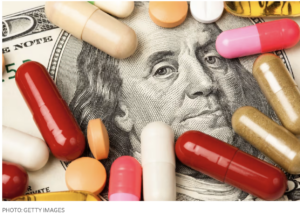
How reliable are the results of clinical trials of new drugs? That’s an important question and one that is getting the attention of researchers.
When a pharmaceutical company develops a new drug, they must first put it through a clinical trial to prove its efficacy and safety. That means patients volunteer to be “guinea pigs” to find out if a new medicine will help them. Only after extensive clinical trials can a new drug be accurately evaluated. Clinical trials are required for FDA approval and form the basis of all new pharmaceutical developments.
But how reliable are these clinical trials and do they have an inherent bias? Huey Freeman, writing for The Epoch Times, tells us of some recent research that suggests there may be bias in some of these trials. He says, “Drug studies sponsored by drug manufacturers tend to report higher drug efficacy than studies not sponsored by drug companies, a report published in the Journal of Political Economy on Oct. 7 found. The report found a “sponsorship effect” that tends to bias sponsored studies toward reporting higher drug efficacies. The author could not find differences in study design between those funded by drug companies and those not.
“Removing the sponsorship effect would reduce the difference in efficacy … by about 50 [percent],” Tamar Oostrom, an assistant professor of economics at Ohio State University, said in her paper.”
“This effect was larger than I expected,” Oostrom told The Epoch Times over email. “My results suggest that sponsored arms of trials should be discounted substantially.” She said that the difference in results between sponsored and unsponsored trials may be that “manufacturers are running multiple trials and selectively publishing those that are more favorable towards their drug.”
Her research analyzed the published papers of 509 trials and 1,215 treatment arms (groups of participants). Most of the trials were published after the drug gained approval from the U.S. Food and Drug Administration. About three-quarters of those examined were for antidepressants, with the remaining quarter for antipsychotic medications. “My paper is the first to examine the effect of financial sponsorship on outcomes by directly comparing a large set of trials in which the exact same arms are tested with differing financial interests,” Oostrom wrote.
There is an obvious incentive for pharmaceutical companies to try to influence the results of clinical trials. Trials in which the manufacturer’s drug does well are more likely to be published. Publications are then used to market the drug to physicians who in turn are more likely to prescribe the new drug.
As an example of bias, Oostrom presented the case of Effexor, an antidepressant introduced by Wyeth Pharmaceuticals in 1993. Over the following 15 years, Wyeth funded 14 randomized controlled trials comparing Effexor’s effectiveness with that of its rival, Prozac. In 12 of these trials, funded solely by Wyeth, Effexor was found to be more effective.
However, when Effexor and Prozac were compared with alternative funding, only one out of three trials found Effexor to be more effective. “Each of these trials is a double-blind RCT comparing the exact same two molecules and examining the same standard outcomes,” Oostrom wrote in her paper.
This research only looked at psychiatric drugs but the results and conclusions may well apply to other clinical trials, too. More research is needed to see if this same bias is present in other clinical trials.

